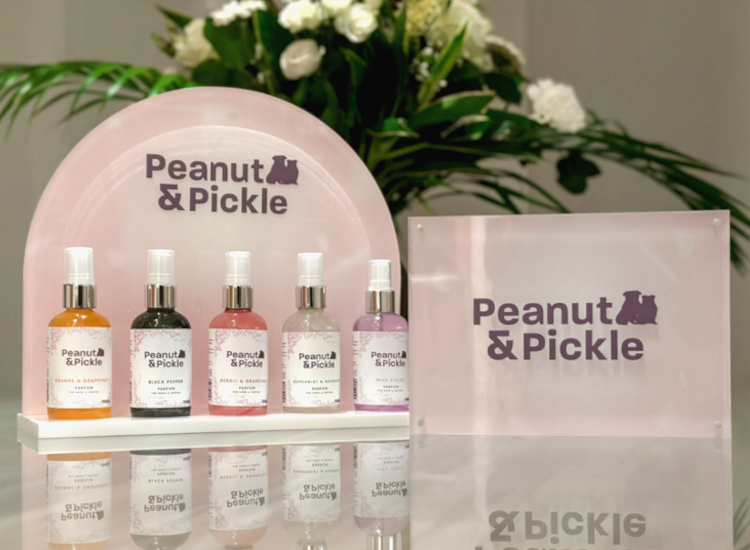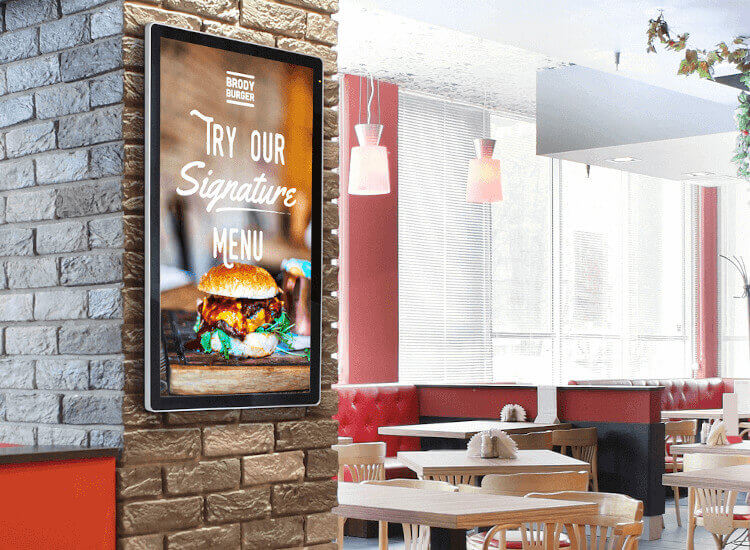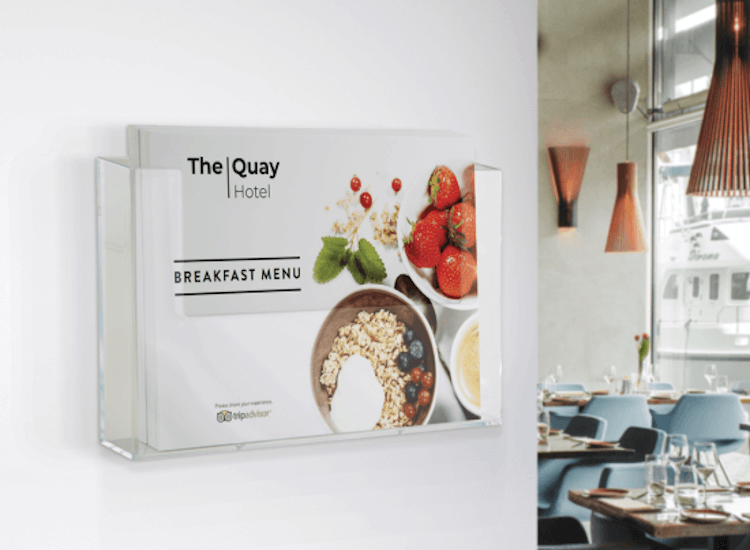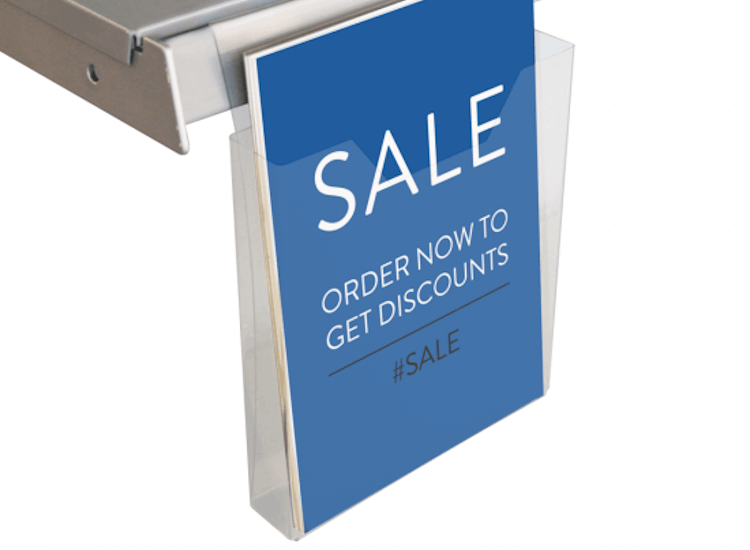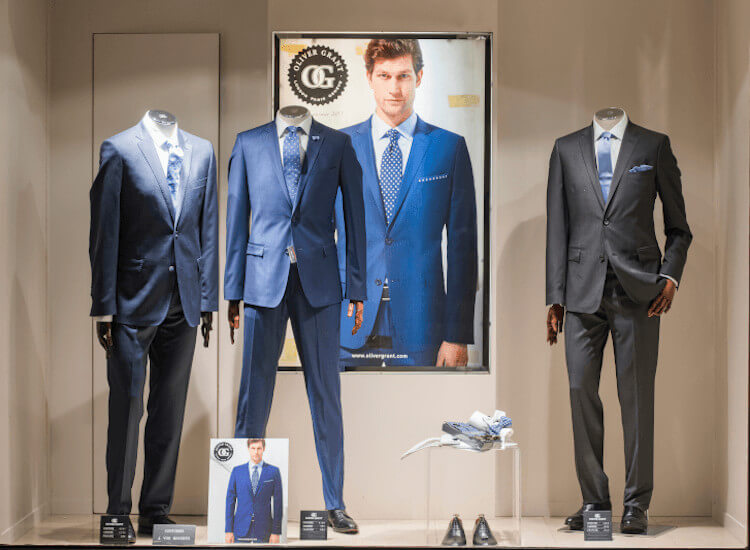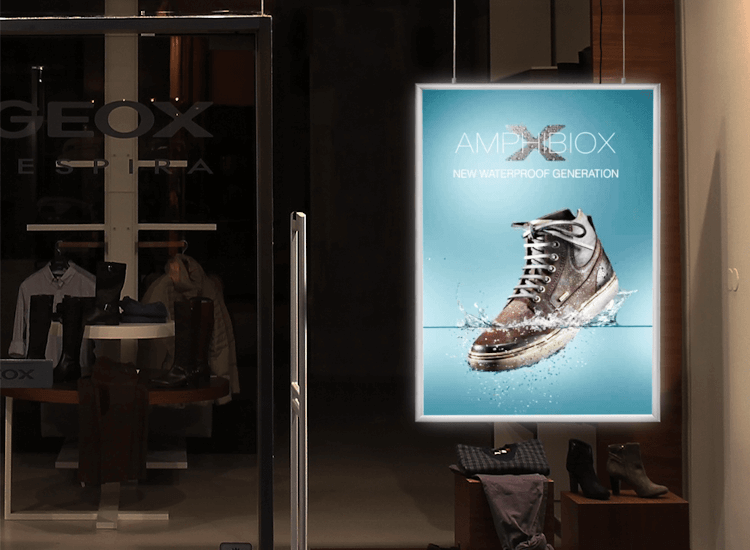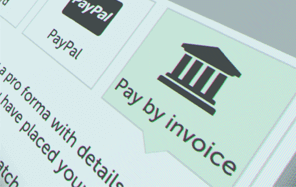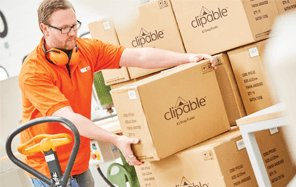Use Customer Personas To Create Targeted POS Displays

Exploring customer personas - types of shoppers in retail
Today’s shoppers are more savvy than ever. We're bombarded every day with adverts on the radio, billboards, television and online, resulting in it getting more difficult to captivate audiences. So how can you strike a chord with customers, persuade them that your in store displays are worthy of attention, and convince them to make a purchase?
Different types of shoppers will respond to different types of marketing and merchandising. You can use this information to construct customer personas, which are semi-fictional archetypes of your target customers. You should have your target customer personas in mind when you design any type of marketing material or displays.
It’s important to understand that your retail store may be catering to more than one, if not all, of these personas. You'll need to use a combination of visual merchandising techniques to attract and retain each shopper type. We’ve narrowed our research down to help you understand these six key customer personas:
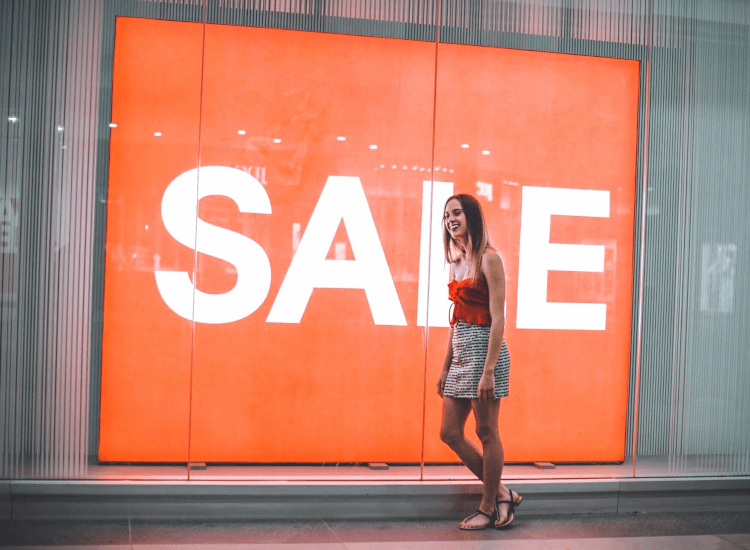
1. Bargain hunters
The bargain hunter is always on the lookout for the best deal and has very little brand loyalty. You can't rely on them to buy from you regularly, as they will go where they think has the best value for money. They're likely to wait for seasonal peaks, such as Black Friday, in order to secure the best price.

2. Impulsive buyers
The impulsive buyer loves bundled, low value products and often makes snap decisions to buy in store. Marketing for impulse purchases works well for younger, ‘opportunistic’ consumers as they're more likely to consider new brands compared to older customers [1].
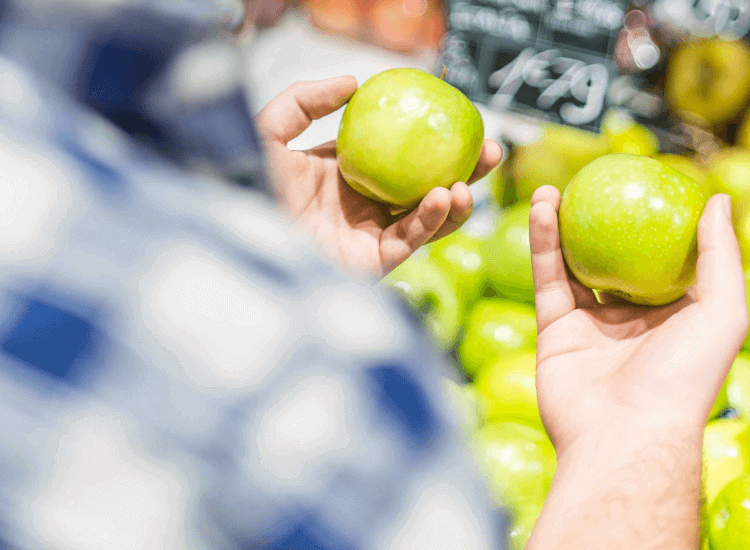
3. Comparison experts
This type of shopper will have done their research before going to the shops, or will be looking for a lot of product information in store in order to make an informed decision. Comparison experts are not often persuaded by aspirational images, and instead focus on price and functionality.

4. Social shoppers
Social shoppers are typically those who like to spend time doing a bit of ‘retail therapy’. They are not necessarily looking to make a big purchase each time they shop. This type of shopper is usually very active on social media and often shares images of products they have bought, helping brand recognition.
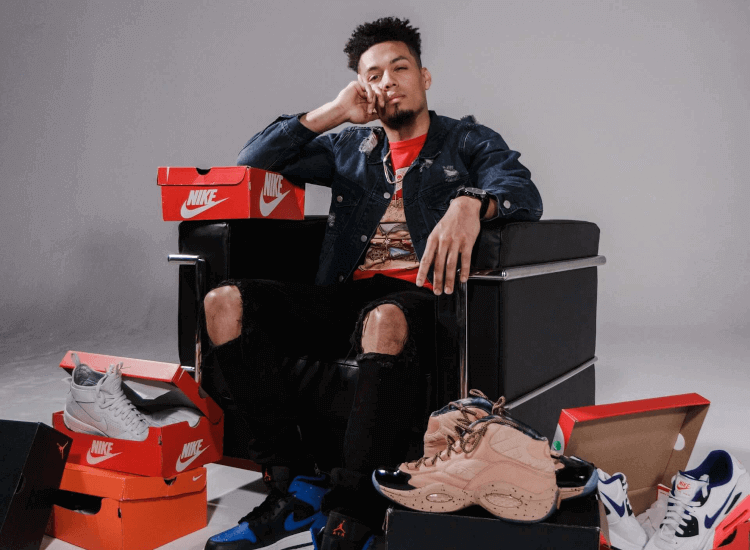
5. Brand loyalists
The brand loyalists are shoppers who know exactly what they like. A great example of a brand loyal customer group are Apple customers, where brand loyalty among customers hit 90% in the first quarter of 2018 [2]. This shopper type is attracted to aspirational lifestyle imagery.
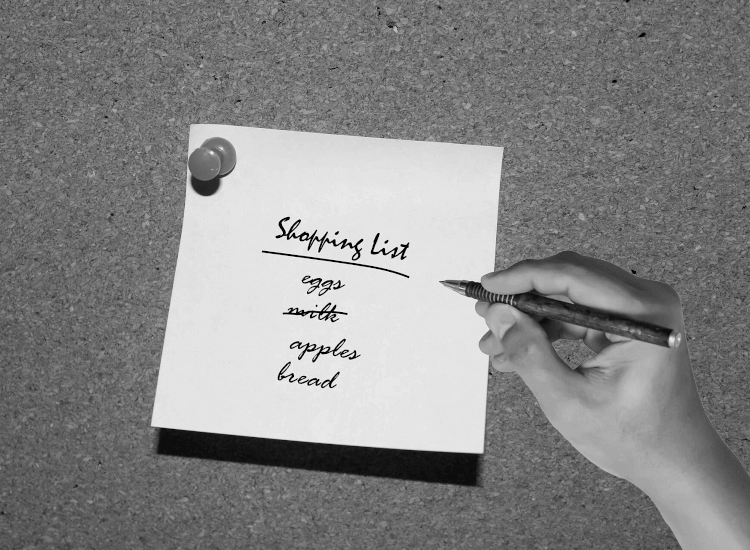
6. Organised shoppers
Organised shoppers know exactly what they need from each shop and like to get in and get out quickly! They often come prepared with a list, strict budget and are not easily persuaded by subliminal advertising messages. Think of organised shoppers as the opposite of impulsive buyers.
How can I work out which customer personas apply to my business?
This totally depends on your business type, as well as the products or services you're trying to sell. It’s up to you to examine the products you sell and the ethos behind your brand, to determine who your target customer personas are.
If you run a luxury boutique clothing store, then you're most likely targeting brand loyalists or social shoppers.
If you run a discount supermarket, then you're more likely to encounter bargain hunters and organised shoppers.
Technology retailers are likely to be selling to comparison experts, while high street chains can target impulsive buyers.
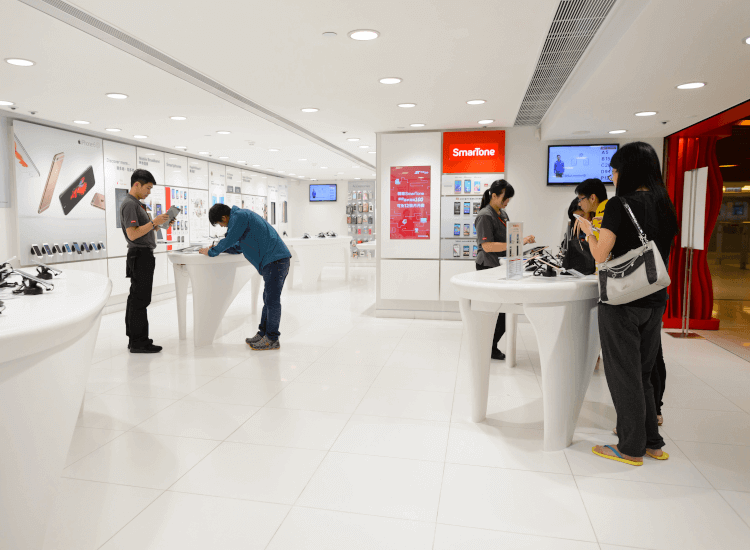
Which point of purchase advertising appeals to different shopper types?
Digital displays for impulsive shoppers
Digital signage is an increasingly-popular way for businesses to present information to consumers in store in an eye-catching manner - but does it work?
68% of surveyed customers say that digital signage would make them more likely to buy advertised products [3]. Additionally, digital screens caused increases in sales between 16-28% in various stores [4].
Using colourful motion displays will draw social shoppers in-store and attract them to specific product ranges.
Digital displays can also be interactive if you use touchscreens, increasing customer engagement.
-


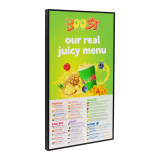
High Brightness Display Screen for Shop Windows
DDUH In stockWas: £1,720.00 From: £1,590.00 ex. VATView -

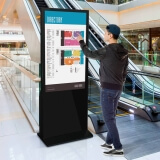
Touchscreen Digital Display Totem
DDV In stockWas: £1,444.30 From: £1,350.00 ex. VATView -


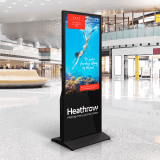
Digital Display Totem
DDT In stockWas: £1,471.86 From: £998.00 ex. VATView
Aisle displays for bargain hunters and organised shoppers
The end of the aisle is typically where retailers place special offers or promotional products. Bargain hunters will actively seek out signage that indicates its presence. Impulsive buyers are easily persuaded by discount signs and sections in all stores, so it’s a good idea to make sure that your discount aisles are clearly signposted upon entering your store.
Impactful aisle signage is key to convincing organised shoppers to stray off their shopping list and make an unexpected purchase. A study conducted by Mumsnet [6] found that nearly half of mums (49%) write a list when they go supermarket shopping, but 61% of them remain flexible to what they buy.
In food shops, display promotional and discount aisle signs near everyday household items, such as milk and bread, in order to attract organised shoppers.
"We have now become so habituated to expect [discounts] that when US chain CVS started filling end caps with undiscounted products under signs made to look like promotions, sales duly increased." Simeon Scamell-Katz, a leading global consumer analyst [5]
-
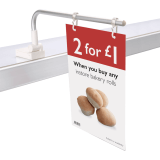
Magnetic Banner Hanger with Optional Banner
AFS3 In stockFrom: £1.89 ex. VATView -
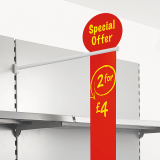
Aisle Fin Holder with Double Slot
AFS7 In stockFrom: £9.10 ex. VATView -

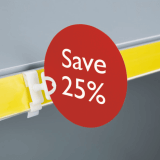
Flexible Promotional Shelf Sign Holders x 100
BS3 In stockFrom: £5.90 ex. VATView -


Shelf Wobbler Strips x 100
WB1 In stockFrom: £3.25 ex. VATView
Photographic images for brand loyalists and social shoppers
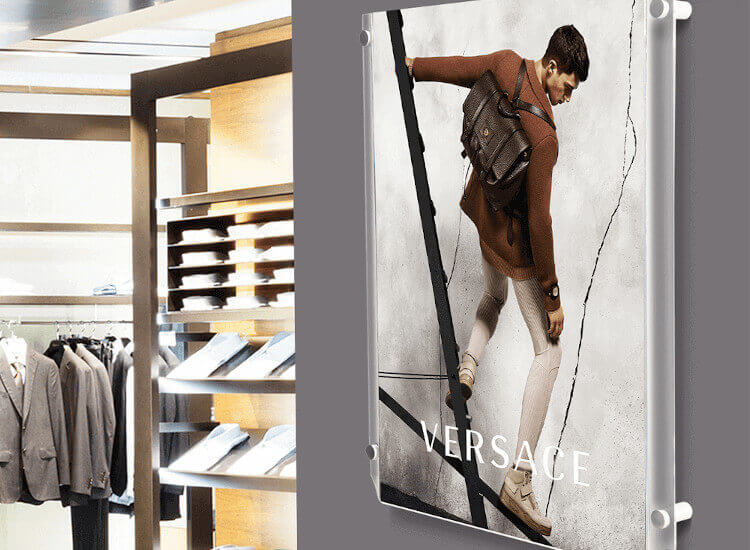
Photographic images are often used to promote high end, luxury items such as perfumes, designer fashion and expensive watches. Typically, they're large images and not focused on a specific product, instead presenting models against stunning backdrops or taking part in an activity. They also only feature a small amount of text, or even just the brand’s name or logo.
This type of poster conveys a feeling to your browsing customers and helps them to recall your brand.
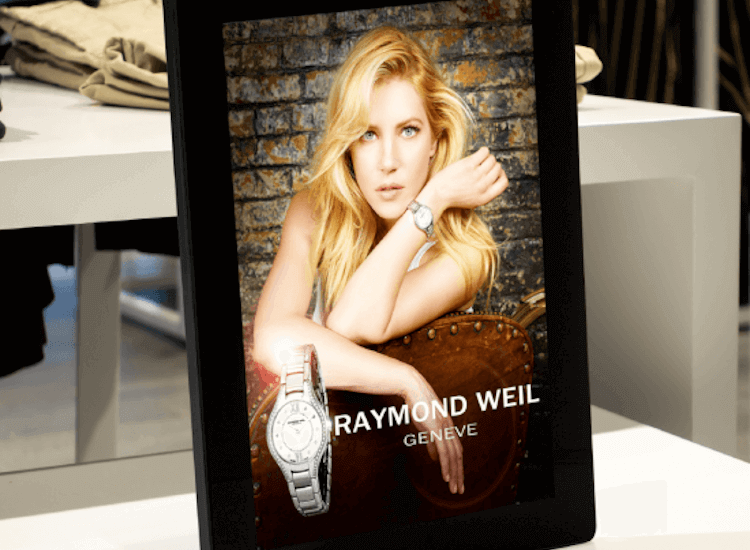
Numerous studies have shown that pictures are more easily recalled or recognised than words [7].
This type of poster is attractive to brand loyalists as it creates aspiration that if they buy this brand’s products, they will also be buying into this glamorous lifestyle, helping to reinforce the reason why they support this brand. Photographic posters also are attractive to social shoppers, as they can entice browsing customers to buy into this lifestyle as well.
The UK Consumer Trends Report states “In this incredibly competitive marketplace, successful brands will be those that sell a lifestyle - not just an item” [8] .
-
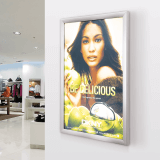
Economy LED Light Box Snap Frame
ECLED In stockFrom: £65.70 ex. VATView -

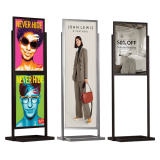
Double Sided Information Board
MOD In stockWas: £134.50 From: £107.60 ex. VATView -
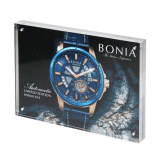
Magnetic Photo Block
AD7 In stockFrom: £3.54 ex. VATView -
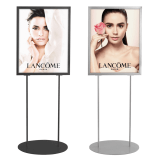
A1 Information Board
FD65 In stockFrom: £96.00 ex. VATView
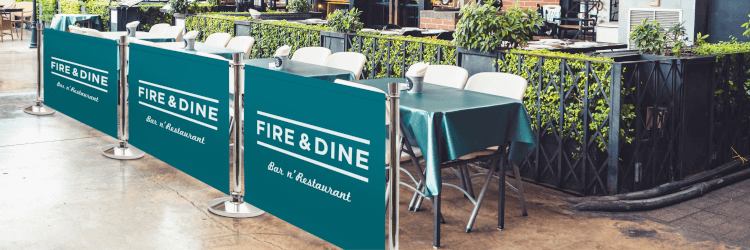
Pavement signs for bargain hunters and impulsive shoppers
Pavement signs are key to the food and drink industry in particular, as they can easily convert passers by into paying diners. 33% of restaurant-goers would not eat at a restaurant with an average of 3 stars on review sites. So, if you’ve got a better rating than this online, you need to make sure that people can see this on your signage [9].
Displaying star ratings on your pavement menu signs gives customers an extra boost of confidence about your service quality, persuading impulsive buyers and bargain hunters to step inside.
Social shoppers in particular would be persuaded to go into your bar, café or restaurant if you display a more personal message onto your boards, such as a ‘quote of the day’ or a funny hand drawn image.
This type of pavement sign is also likely to be uploaded to social media, giving your brand a bit of free publicity. Chalkboards have an added bonus of looking homely.
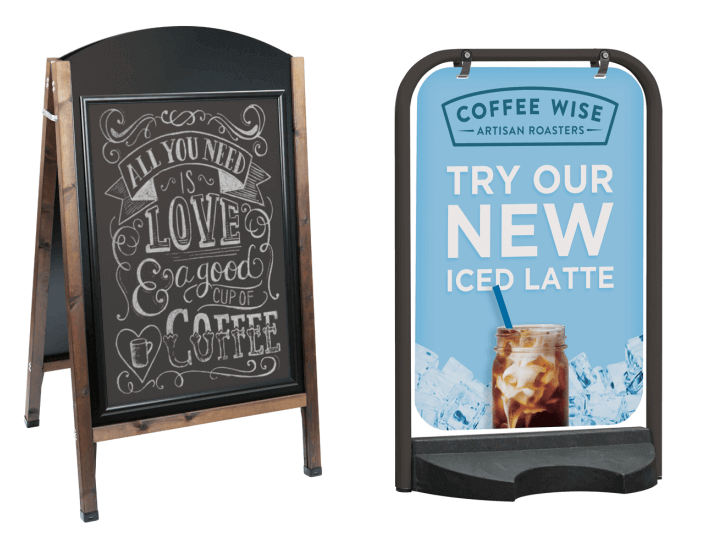
Did you know that 46% of first time customers entered a store because of outdoor signs [10]?
-

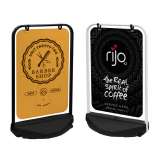
Warrior™ Water Base Swing Board Sign
SWG6 In stockFrom: £89.00 ex. VATView -


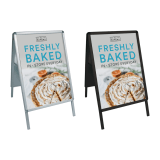
Black or Silver A Board Snap Frame
ABG2 In stockFrom: £44.90 ex. VATView -



40" x 60" Heavy Duty Pavement Sign
WPG6 In stockWas: £761.00 From: £440.00 ex. VATView -
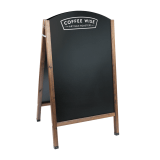
Reversible Chalk A Board
ABC3 In stockFrom: £72.50 ex. VATView -
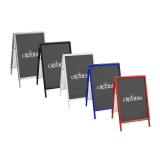
A Board Pavement Sign
ABG In stockFrom: £46.00 ex. VATView -


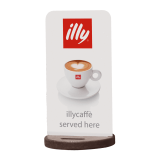
Sign Panel Pavement Sign
SWG3 In stockWas: £116.53 From: £76.50 ex. VATView -
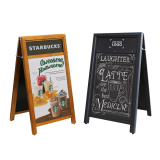
Chalkboard Wooden A Board with Poster Holder
ABC7 In stockFrom: £139.00 ex. VATView -


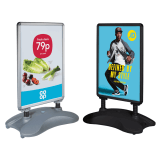
Water Base Pavement Sign
WPG7 In stockFrom: £69.50 ex. VATView
Flyers and leaflets for comparison experts
Comparison experts coming into your store are on the hunt for information that can persuade them to buy a product from your business over your competitors - leaflets are a great way to convey this information.
This type of point of sale display is perfectly suited for retailers specialising in more expensive items in the technology or furniture industries, where there are a lot of specifications for your customers to remember. List product information such as size, colour and price variations, alongside an image of the product itself.
Comparison experts are always looking for extra guarantees on products that add value, such as insurance policies and protective cases.
Informational flyers are a great way to give customers something physical to take away with them to remind them of your business’ competitive offerings, making it more likely that they return.
In store flyers are also used regularly in supermarkets and food stores to allow customers to take away printed recipes.
These recipe flyers are usually displayed alongside the ingredients that you’ll need to make the meal, creating a hard-to-resist situation for impulsive buyers.
Giving your customers some useful information to take away leaves them with a positive feeling of your brand. It can even convert impulsive buyers into brand loyalists. You can also use leaflets and flyers to promote upcoming special events to attract social shoppers and bargain hunters.
-
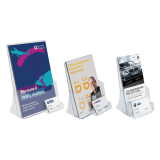
Leaflet Holder with a Business Card Pocket
BLD In stockFrom: £4.34 ex. VATView -
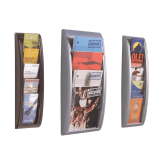
Premium Tiered Leaflet Holder Wall Mounted
PWP In stockFrom: £38.48 ex. VATView -
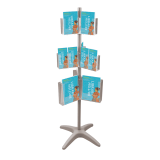
Carousel Leaflet Holder
FD10 In stockFrom: £30.73 ex. VATView -
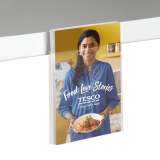
Scanning Rail Leaflet Holder
RFP In stockFrom: £0.68 ex. VATView
Window displays for social shoppers and impulsive buyers
Franck Banchet, Creative Director of Au Printemps, says window displays are "the key element that encourages the public to step into the store and spend” [11].
With this in mind, it is essential that your window displays are tailored to attract your target customer personas.
Banchet also states that “good lighting is essential. It’s the base for a good window display”. Use bright and eye-catching illuminated window signs. This is especially useful when it is dark outside, as they can catch the attention of passing customers.
Fashion retailers are known for creativity and boldness in their windows, but you can still create a simple, yet effective window display for other industries. Butchers and bakers have been displaying fresh produce in their shop windows for centuries, alongside price tags and offers to entice hungry customers. Impulsive buyers will find them difficult to refuse!
Many brands use their window displays to make a statement on the business's view on hot topics, such as LGBTQ+ rights and animal welfare issues. If social shoppers feel that your brand shares their values, they're more likely to step into your store.
-

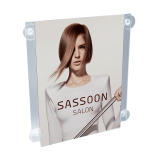
Window Display Poster Holder
SEC In stockFrom: £7.62 ex. VATView -
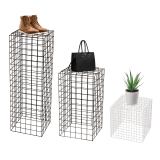
Wire Display Plinth
WDP In stockWas: £69.58 From: £45.00 ex. VATView -
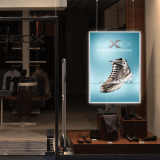
Double Sided Hanging LED Backlit Snap Frame
HLED In stockFrom: £150.59 ex. VATView -

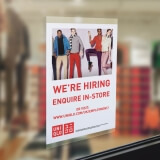
Window Sign Holder
AWPH In stockFrom: £3.43 ex. VATView
Overhead signs for organized shoppers
Organized shoppers will respond well to overhead signs. They tend to already have a clear picture of where they want to go in-store, so they will appreciate your overhead signs helping them to navigate there quickly. You can also use these hanging signs to promote special offers.
-
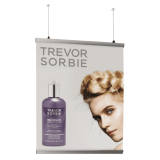
Aluminium Poster Gripper
PSC1 In stockFrom: £6.90 ex. VATView -

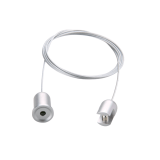
Ceiling to Sign Cable with Fixings
AA5 In stock£4.85 ex. VATView -
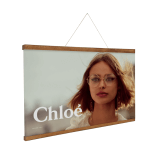
Wooden Magnetic Poster Hanger
MPH In stockFrom: £5.90 ex. VATView -
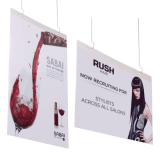
Ceiling Poster Holder with Holes
PS3 In stockFrom: £1.47 ex. VATView
Liked this article? Check out our guide to Gen Z and Millennial shopping habits!
References
1.
Chandon, Hutchinson, Bradlow & Yang, ‘Does In-Store Marketing Work? Effects Of The Number & Position Of Shelf Facings On Brand Attention & Evaluation At The Point Of Purchase’, Journal of Marketing, Vol. 73 (November 2009), 1–17.2.
‘Report: Apple iPhone brand loyalty hits 1 year high, far outpacing Samsung, LG, Motorola’, Stark Insider, April 2018, retrieved from: https://www.starkinsider.com/2018/04/apple-iphone-brand-loyalty-1-year-high-samsung-lg-motorola-report.html.3.
‘Digital screens in Ireland Shopper Investigation’, POPAI, In-store Insights (December 2022), Issue 52, pp 5-11.4.
‘Digital Spotlight’, POPAI (October 2021), Issue 52, pp 10-17.5.
‘The secrets of our supermarkets’, The Independent (2012) https://www.independent.co.uk/news/business/news/the-secrets-of-our-supermarkets-8228864.html.6.
‘Mums’ supermarket loyalty is being eroded, Mumsnet and Starcom MediaVest study shows’, Retail Times (2014) http://www.retailtimes.co.uk/mums-supermarket-loyalty-eroded-mumsnet-starcom-mediavest-study-shows/.7.
Childers and Houston, ‘Conditions For A Picture-Superiority Effect On Consumer Memory’, Journal of Consumer Research, Volume 11, Issue 2 (September 1984), pp. 643–654.8.
UK Consumer Trends Report’, Crimson Hexagon, 2016, retrieved from https://wholettheyankindotcom.files.wordpress.com/2016/11/uk-consumer-trends-report.pdf.9.
‘The Impact of Restaurant Star Ratings on Customers’, Review Trackers, 2016, retrieved from: https://www.reviewtrackers.com/restaurant-star-rating/.10.
Ebster & Garaus, Store Design and Visual Merchandising: Creating Store Space That Encourages Buying, (New York: Business Expert Press, First Edition, 2011) p. 56.11.
Frank Banchet, Tony Morgan, Visual Merchandising: Window and in-store displays for retail, (London: Laurence King Publishing, Third Edition, 2016) p. 82.





